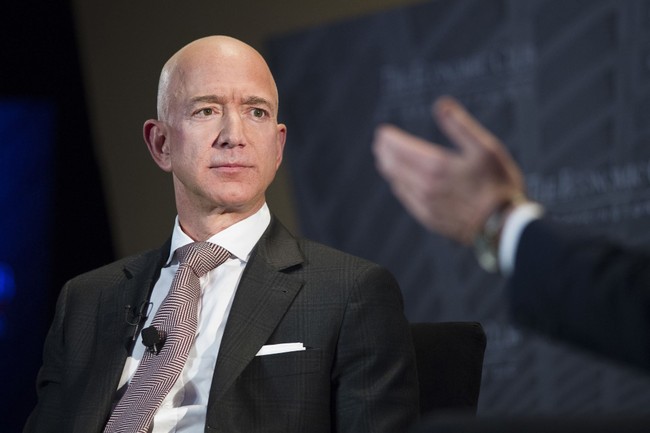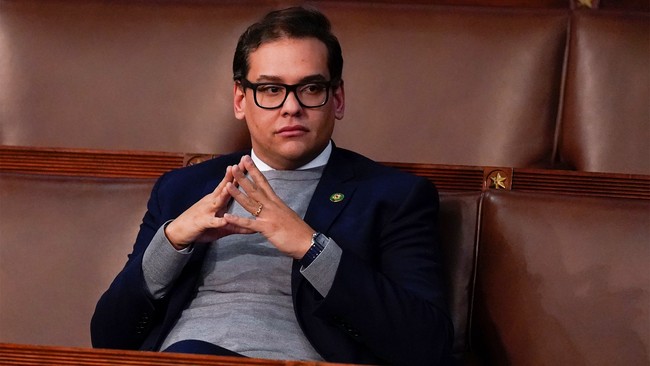Perhaps the stream of resignations at the Washington Post over the last few days will prove a feature rather than a bug for Jeff Bezos. After the Amazon multi-billionaire ordered the Post to pull its endorsement of Kamala Harris, staffers and editors erupted in outrage, while readers canceled subscriptions. Several staffers announced their intent to resign in protest over the paper’s refusal to take an official stand against Donald Trump.
Having those staffers out of the way may help Bezos’ reported overall strategy to restore ideological balance to his newspaper. The New York Times buried that in their report on Friday evening that Bezos intends to broaden interest in the Post by giving conservatives reason to read it, and the New York Post picked up on that thread today.
Although … one does have to wonder about his reported strategy to rebalance the Post:
Washington Post owner Jeff Bezos has reportedly given the newspaper a mandate to add more conservative voices to its opinion section — even as he remains silent over the broadsheet’s decision not to endorse a candidate in the 2024 presidential election.
Bezos — the world’s second richest person with a fortune that Bloomberg Billionaires Index valued at $211 billion as of Monday — is keen on gaining a more ideologically diverse readership by expanding his newspaper’s reach among right-leaning audiences, according to a report in The New York Times. …
Robert Kagan, a member of the opinions section, resigned in protest. He said that Lewis’ explanation was “laughable” and that the decision not to endorse stemmed from an alleged deal between Bezos and former President Donald Trump.
So Kagan leaves and Bezos can now add another conservative voice. Sounds like a win-win!
Except, of course, that the Post does publish conservative columnists — a couple of them, anyway. My friend and colleague Hugh Hewitt has a regular column there, as does my other friend Jim Geraghty. They may not be publishing conservo-populists in the MAGA sense, but Hugh certainly connects to and understands that movement well enough to present its arguments. Granted, conservatives are a clear and tiny minority in that stable (Jennifer Rubin doesn’t count despite her past bio claims), and adding more would help. But the Post already platforms a couple of honest conservatives, not just converts to progressive postures from center-Right commentators.
The problem at the Post isn’t the opinion section; it’s the news section. Bezos could have Hugh become the opinion editor and hire nothing but conservative writers to fill that section’s pages, and its news sections would still drip with disdain for any readers to the right of The Bulwark. (That’s not a knock on writers at The Bulwark, who are honest about their biases. Hey, so are we! We’re both opinion sites.) The Washington Post’s editorial biases, once latent and for the last several years deliberate, have undermined its credibility and chased all but the most sympathetic progressive readers away from the platform. Some readers may have canceled subscriptions last week, but many many more have done so over the past few years of “Democracy Dies in Darkness” partisan advocacy.
Bezos and Lewis have warned for months that the current track for the Post isn’t sustainable, and that’s not just on the opinion section. The staff refused to listen, and still refuse to listen now. When Bezos starts making changes to the newsroom, the self-selection of departures will be even more telling than over a silly idea that anyone would be convinced by an editorial from the paper lecturing readers on how to vote next week.
It may be too late to fix this, even if Bezos and Lewis could find more balanced leadership to take the editorial helm. As Axios reports today but hardly understands, “the big media era is over.” That much is true, but what Jim VandeHei and Mike Allen fail to realize is that Big Media killed it:
The mainstream media’s dominance in narrative- and reality-shaping in presidential elections shattered in 2024.
- The future of news and information is upon us. Welcome to the shards of glass election — and news era.
Why it matters: How and where Americans get informed has broken into scores of pieces — from young men on Joe Rogan’s podcasts, to suburban women following Instagram influencers.
All of this is interesting, as far as Axios takes it. The question is why Americans choose alternates to “Big Media” to get informed. And the answer is that Big Media squandered its credibility with decades of putting the narrative above the facts, treating half of its potential audiences as a “basket of deplorables,” and actively interfering in the electoral process. How else to explain the actions of both ABC News and CBS News in intervening against Republican candidates in two debates in the last few weeks, other than an active attempt to influence the election against the GOP?
If Bezos wants to fix this, more power to him, so to speak. He’s got a lot of resources, so I wouldn’t necessarily bet against it. But to succeed, he’ll have to uproot an entire generation of activists posing as reporters and editors and find replacements committed to objective journalism. And where would Bezos find them?
Read the full article here




![Biden ‘Discovers’ Musk’s Old Visa – Finally Gets Tough on Immigration? [WATCH] Biden ‘Discovers’ Musk’s Old Visa – Finally Gets Tough on Immigration? [WATCH]](https://www.lifezette.com/wp-content/uploads/2024/10/2024.10.28-02.28-lifezette-671f9f763905e.jpg)
![Trump Agreed to Sit Down Interview with Serial Hoax Reporter Jeffrey Goldberg [WATCH] Trump Agreed to Sit Down Interview with Serial Hoax Reporter Jeffrey Goldberg [WATCH]](https://www.lifezette.com/wp-content/uploads/2025/01/2025.01.22-06.43-lifezette-67913c6c7af1c.jpg)



![Daytime Kidnapping Attempt in Florida Foiled by Quick-Thinking Good Samaritans [WATCH] Daytime Kidnapping Attempt in Florida Foiled by Quick-Thinking Good Samaritans [WATCH]](https://www.rvmnews.com/wp-content/uploads/2025/04/2025.04.25-06.45-rvmnews-680bd853d60f3.jpg)
